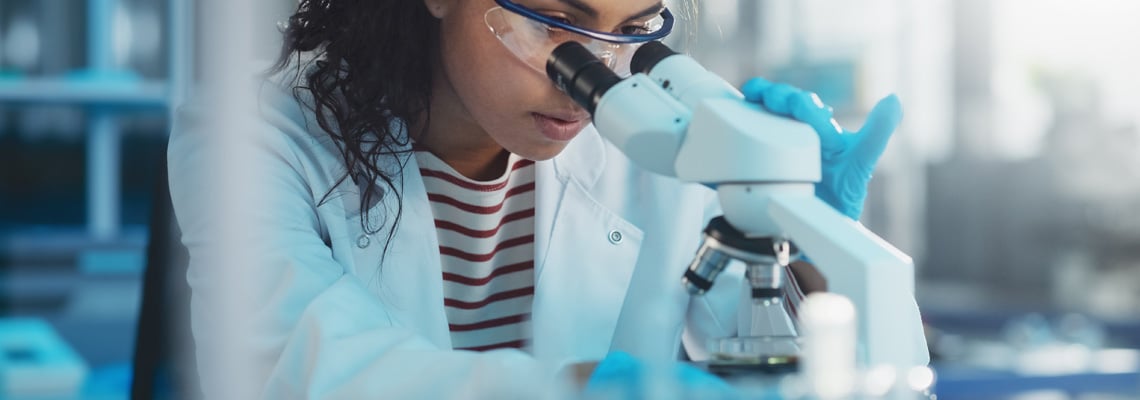
Biotechnology is the use of living systems and organisms to develop or make products, or "any technological application that uses biological systems, living organisms, or derivatives thereof, to make or modify products or processes for specific use" (UN Convention on Biological Diversity, Art. 2).
The study of biotechnology includes a wide range of subjects, such as microbiology, molecular biology, cell biology, biochemistry, genetics, and chemical engineering. Biotechnology can be used to produce food, medicine, and other products. It can also be used to clean up the environment.
Core Subjects in Biotechnology
Biotechnology is the branch of science that deals with the application of living organisms and systems to manufacturing and other industrial processes. The core subjects in biotechnology are microbiology, biochemistry, and cell biology. These subjects are essential for understanding the basic mechanisms of life and for developing new technologies and products.
Microbiology is the study of microorganisms, which are tiny living organisms that can only be seen with a microscope. Microorganisms include bacteria, viruses, fungi, and protozoa. Biochemistry is the study of the chemical processes that occur in living organisms. It includes the study of proteins, enzymes, DNA, and other molecules. Cell biology is the study of the structure and function of cells, the basic unit of life.
All three of these core subjects are essential for students who want to pursue a career in biotechnology in the institute of circular economy. They will provide a strong foundation in the basic principles of biotechnology and prepare students for advanced study in this field.
Interdisciplinary Subjects in Biotechnology
Most people are familiar with the basic concepts of biology and chemistry, but biotechnology requires a more in-depth understanding of both disciplines. In addition to traditional biology and chemistry courses, students interested in pursuing a career in biotechnology should take classes in physics, computer science, and math.
A typical biotechnology program will include coursework in all of the major branches of biology, including botany, zoology, and microbiology. Chemistry courses will focus on topics like organic chemistry and biochemistry. Physics courses will cover topics like thermodynamics and fluid mechanics. Computer science courses will introduce students to programming languages and algorithms. And finally, math courses will include topics like calculus and statistics.
While the specific courses required will vary depending on the school you attend, these are the types of subjects you can expect to study in a biotechnology program. By getting a well-rounded education in all of these disciplines, you'll be prepared for a successful career in biotechnology.
Specializations in Biotechnology
There are many specializations within the field of biotechnology. The most common and well-known specialization is medical biotechnology, which focuses on using living cells and biological molecules to research and develop new treatments and therapies for diseases. Other specialized areas include agricultural biotechnology, which applies biotechnology techniques to improve crop yields and quality; industrial biotechnology, which uses microorganisms to produce chemicals and biofuels; and environmental biotechnology, which uses biotechnology to clean up environmental pollution.
Skills Required in Biotechnology
Most subjects in biotechnology are similar to what you would find in other sciences, such as biology, chemistry, and physics. However, there are also some unique subjects, such as cell culture and fermentation. In addition to these basic subjects, you will also study some business-related subjects, such as project management and marketing.
Career Opportunities in Biotechnology
Biotechnology is a rapidly growing field with a wide range of career opportunities. There are many different types of biotechnology, each with its own set of skills and knowledge. The most common types of biotechnology are medical, agricultural, and environmental.
Medical biotechnology focuses on the diagnosis, prevention, and treatment of disease. Agricultural biotechnology focuses on the production of food, feed, and fiber. Environmental biotechnology focuses on the cleanup of pollution and the management of waste.
Most biotechnology programs offer a combination of coursework in the sciences and engineering. Common courses include biology, chemistry, physics, and mathematics. Many programs also offer courses in business, law, and ethics.
Most biotechnology jobs require at least a bachelor’s degree. Many jobs also require experience in a related field, such as medicine, agriculture, or environmental science. Some jobs may require a master’s degree or higher.
Biotechnology is the use of living systems and organisms to develop or make useful products, or "any technological application that uses biological systems, living organisms, or derivatives thereof, to make or modify products or processes for specific use" (UN Convention on Biological Diversity, Art. 2).
The term biotechnology was first used in the 1930s by Karl Ereky, a Hungarian engineer, to describe the process of using living things to create useful products. Ereky's vision of "biotechnology" encompassed any process that used living organisms to create products or modify processes.
Today, biotechnology is used in a variety of ways, from developing new drugs and diagnostic tools to producing food and biofuels. Biotechnology is a rapidly growing field with tremendous potential to improve the quality of life for people around the world.